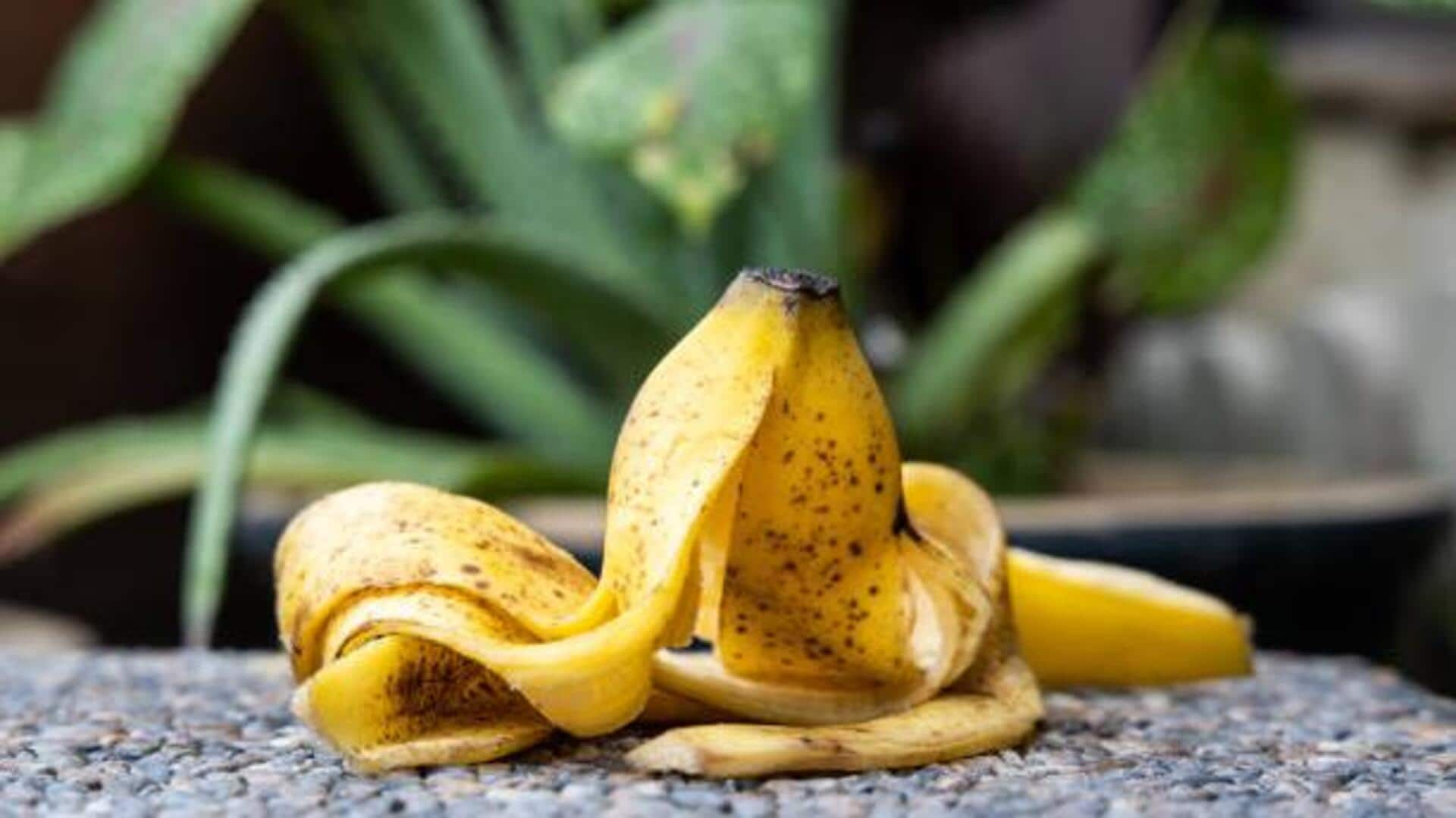
Banana peels as fertilizer? Here's how to use them
What's the story
Composting banana peels is an excellent way to enrich your garden soil with essential nutrients, such as potassium, phosphorus, and calcium. It is a simple and inexpensive gardening hack that reduces waste and creates a natural fertilizer for healthy plant growth. Plus, it is accessible for gardeners of all levels. Here's how you can effectively compost banana peels.
Nutrient value
Nutrient-rich benefits of banana peels
Banana peels are also rich in potassium, which strengthens the stems of plants and increases their resistance to diseases. They also provide phosphorus that helps roots grow and flowers bloom. Calcium from the peels improves the cell wall structure of plants. This makes banana peels a great addition to your compost pile or directly into the soil as they decompose.
Composting process
Simple steps to composting banana peels
To begin composting banana peels, start by chopping them into small pieces to facilitate faster decomposition. Incorporate these pieces into your current compost pile or bin with other organic materials such as vegetable scraps and leaves. Keep the pile moist but not soaked by watering it occasionally, if needed. Turn the pile every few weeks to aerate and encourage quicker breakdown.
Soil enrichment
Direct application in garden soil
If you don't want to wait for full decomposition in a compost bin, you can also bury chopped banana peels directly into garden soil close to plant roots. This way, nutrients from the peel leach into the soil as they decompose naturally over time. However, make sure that buried pieces are covered with enough soil so they don't attract pests.
Liquid fertilizer method
Using banana peel tea as liquid fertilizer
Another way to utilize banana peels is by preparing "banana peel tea." Soak chopped peels in water for two days, then strain. This liquid fertilizer offers vital nutrients to plants during important growth stages like flowering or fruiting, without the risk of over-furtilization commercial products pose.